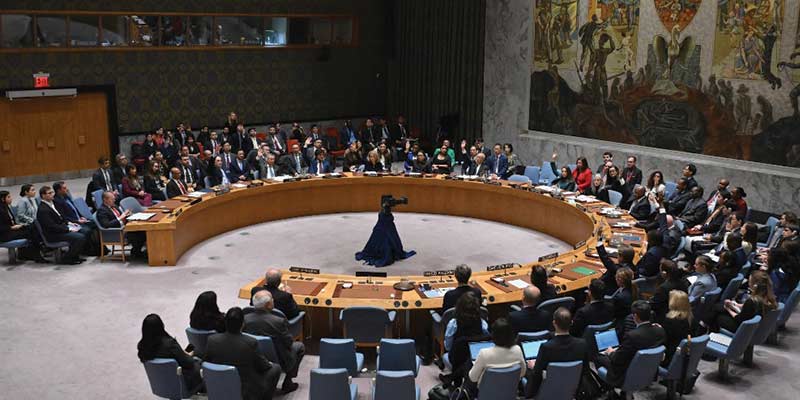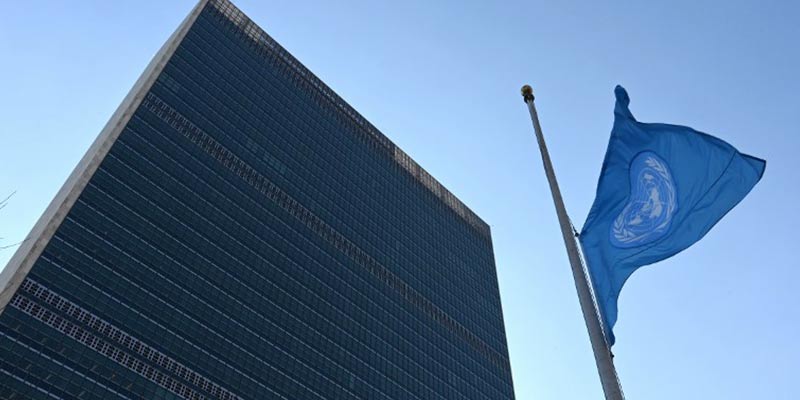- India
- Sep 26
- Kevin Savio Antony
Chile backs India’s permanent UNSC membership
• Chilean President Gabriel Boric Font has voiced support for India’s inclusion as a permanent member of the United Nations Security Council (UNSC) while addressing the General Debate of 79th Session of the UN General Assembly in New York.
• He called for a deadline for UNSC reforms to reflect current global realities and proposed the inclusion of India, Brazil, and at least one African nation in the UNSC, highlighting that only the lack of political will stands in the way of reforms.
• India’s participation in the Security Council has been as a non-permanent member during the periods of 1950-51, 1967-68, 1972-73, 1977-78, 1984-85, 1991-92, 2011-12, and 2021-22.
United Nations Security Council
• The United Nations Charter established six main organs of the United Nations, including the Security Council.
• The Security Council, which is charged with maintaining international peace and security, has not changed from its 1945 configuration: 10 non-permanent members from all regions of the world elected for two-year terms without veto power and five countries that were dominant powers at the end of World War II are permanent members with veto power: the United States, Russia, China, Britain, and France.
• All members of the United Nations agree to accept and carry out the decisions of the Security Council. While other organs of the United Nations make recommendations to Member States, only the Security Council has the power to make decisions that Member States are then obligated to implement under the Charter.
• The Security Council held its first session on January 17, 1946 at Church House, Westminster, London.
• Since its first meeting, the Security Council has taken permanent residence at the United Nations headquarters in New York City.
• A representative of each of its members must be present at all times at UN Headquarters so that the Security Council can meet at any time as the need arises.
• The Security Council takes the lead in determining the existence of a threat to the peace or act of aggression.
• It calls upon the parties to a dispute to settle it by peaceful means and recommends methods of adjustment or terms of settlement.
• In some cases, the Security Council can resort to imposing sanctions or even authorise the use of force to maintain or restore international peace and security.
• The Security Council has a Presidency, which rotates, and changes, every month.
The need for reforms in the UNSC
Since the end of the Cold War, India has been spearheading a move for reforms at the UN to make the world body more representative of the changing global realities while enhancing its credibility and effectiveness.
In 1992, the UN General Assembly adopted a resolution.
The resolution reflected three main complaints:
i) The Security Council no longer represents contemporary political realities.
ii) Its decisions reflect only Western values and interests and are dominated by a few powers.
iii) It lacks equitable representation
In view of these growing demands for the restructuring of the UN, on January 1, 1997, the UN Secretary-General Kofi Annan initiated an inquiry into how the UN should be reformed. For instance how the members of the Security Council should be elected.
The following are just some of the criteria that have been proposed for new permanent and non-permanent members of the Security Council.
A new member should be:
• A major economic power
• A major military power
• A substantial contributor to the UN budget
• A big nation in terms of its population
• A nation that respects democracy and human rights.
India’s quest for UN Security Council permanent membership
1) India’s Historic Association with the UN System:
India has been a founding member of the United Nations and actively participated in its various initiatives, including Millennium Development Goals (MDGs) and Sustainable Development Goals (SDGs).
India was offered permanent UNSC membership by the U.S. in 1950 and by the Soviet Union in 1955. However, due to Cold War politics, India declined these offers.
India has been elected seven times as a non-permanent member of the UNSC, most recently in 2011-12.
Currently, India contributes nearly double the number of peacekeepers compared to all the P5 countries combined.
2) India’s Intrinsic Value:
India is the world’s largest democracy and is set to become the most populous country, enhancing its legitimacy for a permanent seat.
With its economy now the fifth largest globally and continuing to grow rapidly, India’s economic clout is undeniable.
Since acquiring nuclear-weapon state (NWS) status in 1998, India shares a similar defense capability as the current permanent UNSC members, all of which are NWS.
India’s expanding role in global politics, economics, science, and technology is visible in its maritime diplomacy, space initiatives, and inclusion in strategic export control regimes like the MTCR and Wassenaar Arrangement.
India’s bid for permanent membership is backed by the G4 countries (Brazil, Japan, Germany), many permanent UNSC members, and a majority of UN General Assembly nations.
3) Representing the Developing World:
India's leadership in the Non-Aligned Movement (NAM) and the G77 group makes it a natural representative for developing nations.
Its inclusion would strengthen the representation of the Global South in the UNSC.
India’s reputation as a ‘moralistic force’ for developing countries underscores its role in promoting a more democratic UNSC.
4) Intended Benefits:
A permanent seat would amplify India’s geopolitical influence and ensure its voice is heard in global decision-making.
India’s inclusion in the UNSC would shift its role from a responsible stakeholder to a global rule-maker, influencing international norms and policies.
India’s membership would provide a strategic counterbalance to China in the UNSC and limit China's influence, especially in cases where it supports Pakistan or other rivals.
It would ensure that Indian interests are safeguarded against great power politics, particularly from China.
5) Challenges in India’s Path:
India’s refusal to sign the Nuclear Non-Proliferation Treaty (NPT) and the Comprehensive Nuclear-Test-Ban Treaty (CTBT) is a common critique.
As a veto-wielding permanent member, China has consistently blocked India’s bid for permanent membership.
Despite economic progress, India’s low performance on the Human Development Index (HDI) remains a concern.
India faces competition from other G4 nations (Japan, Brazil, Germany), each vying for a permanent UNSC seat.
India’s military influence is largely confined to the Indian Ocean region, and it relies heavily on imported weaponry from the US and Russia, raising questions about its global defense capabilities.
(The author is a trainer for Civil Services aspirants.)


